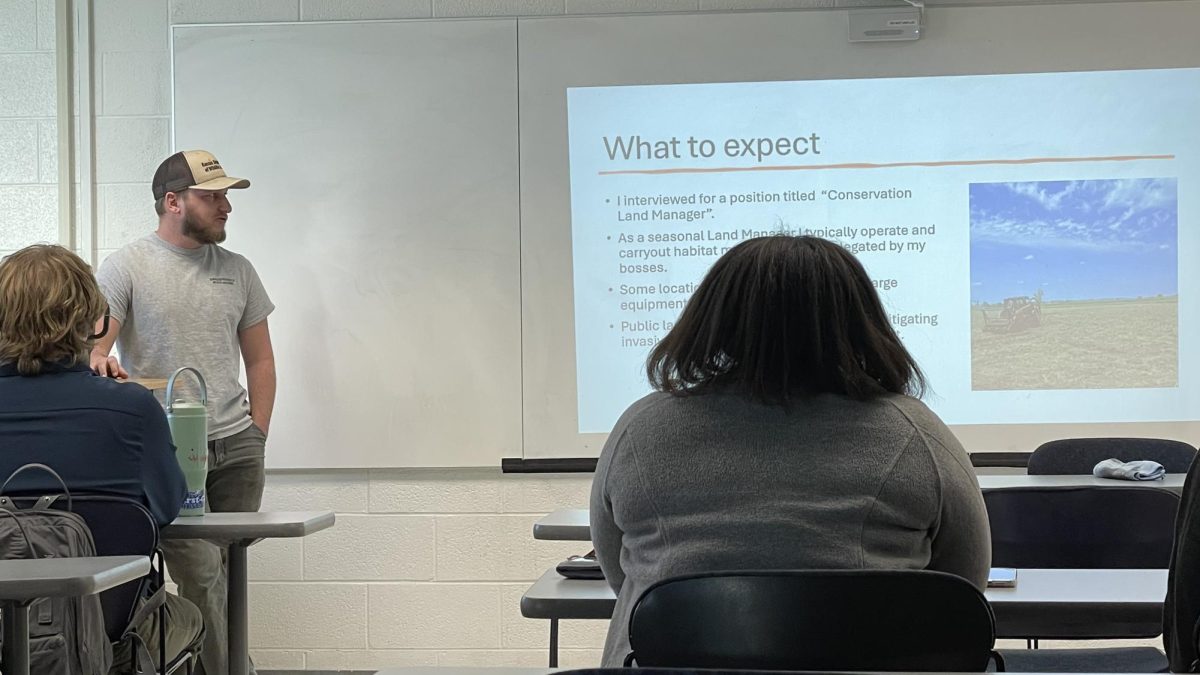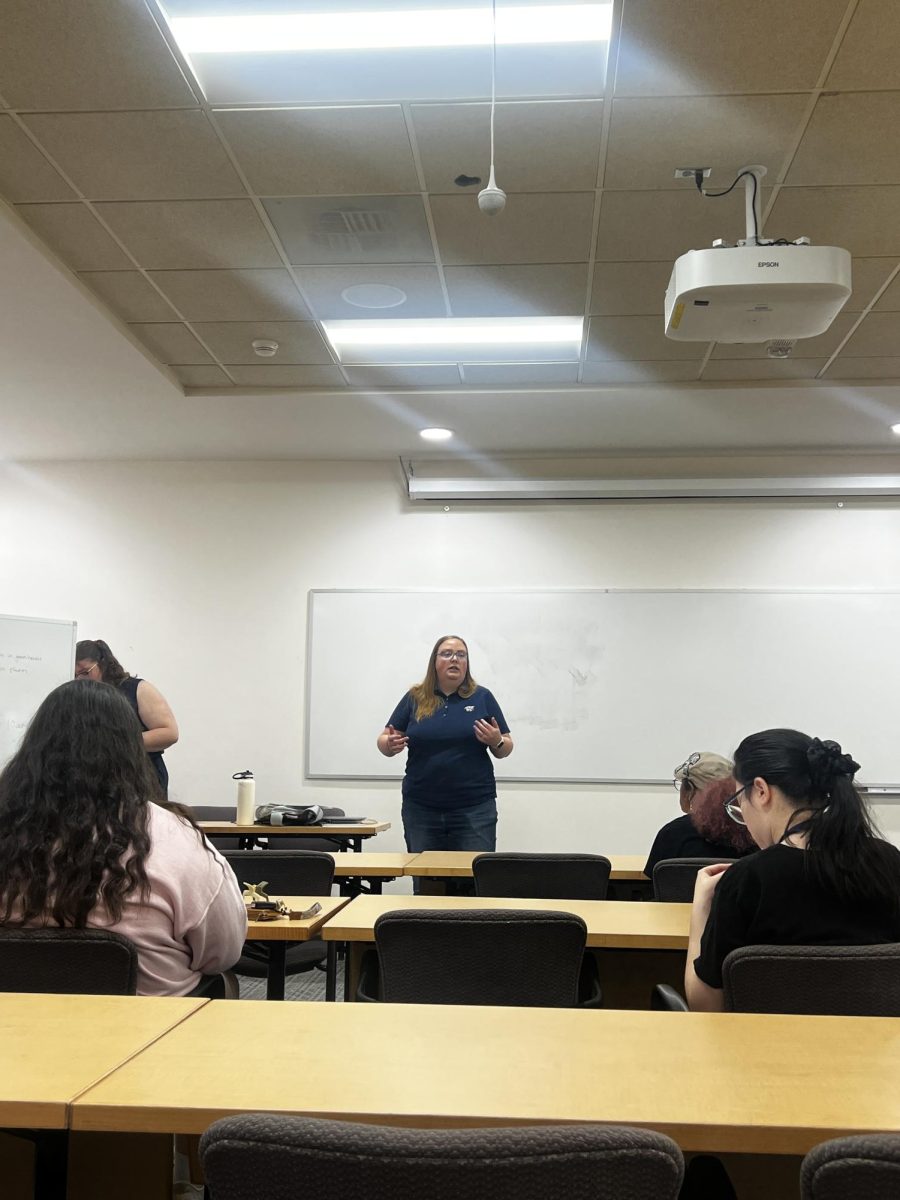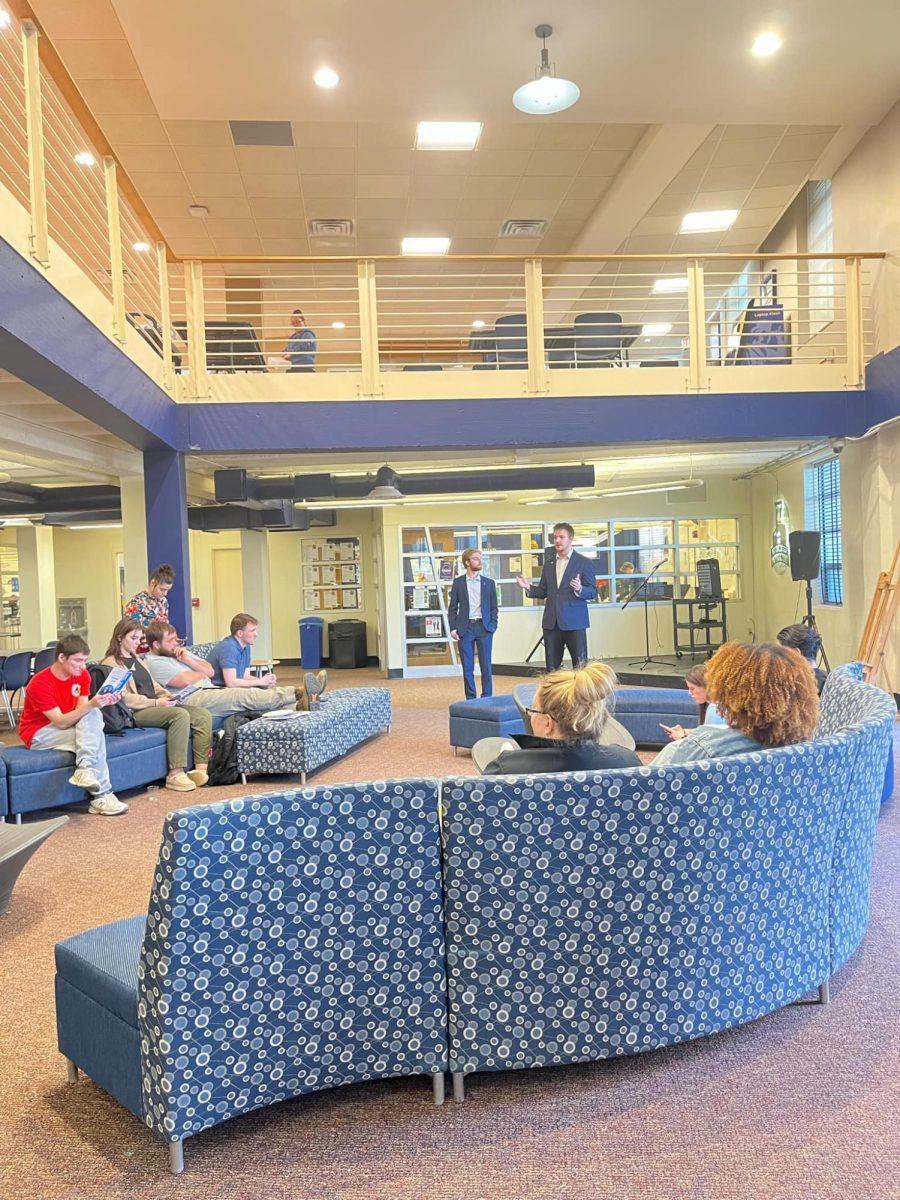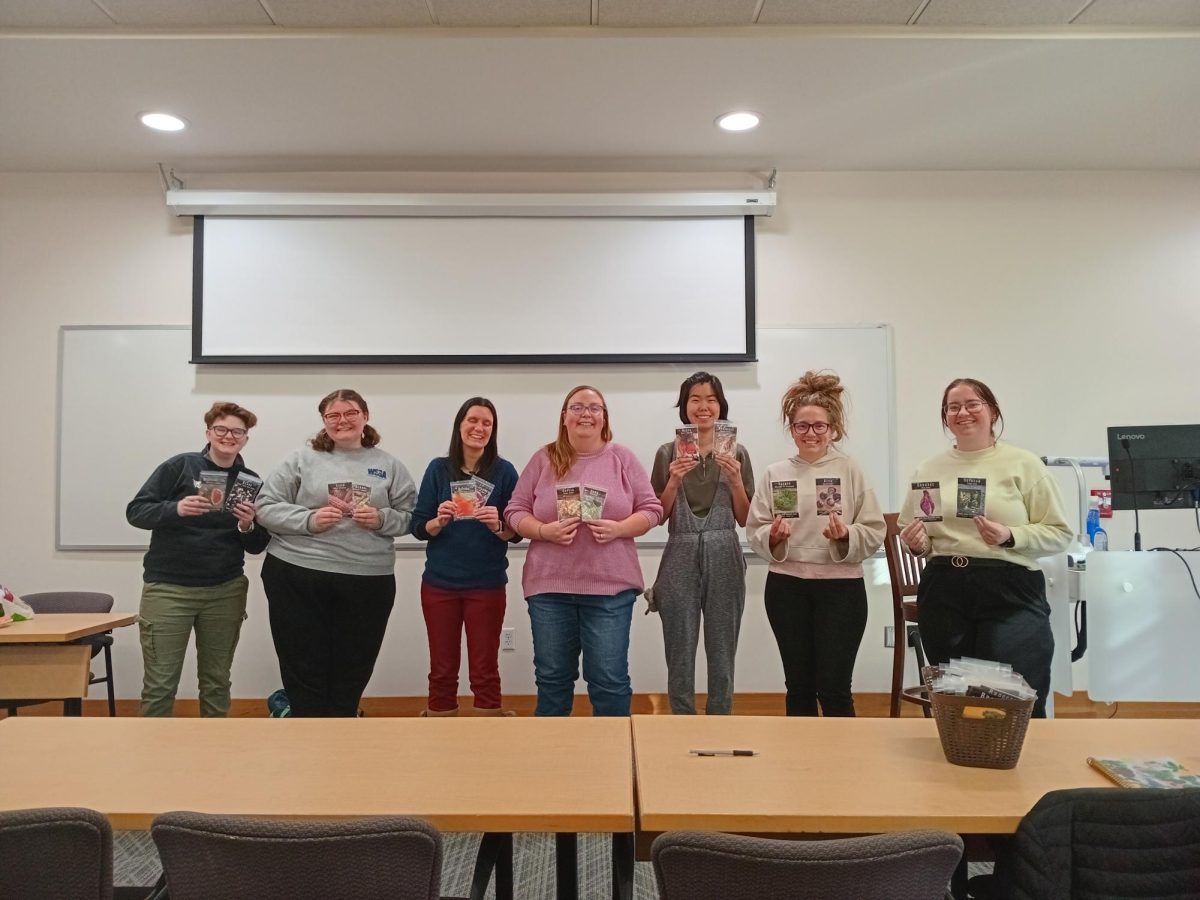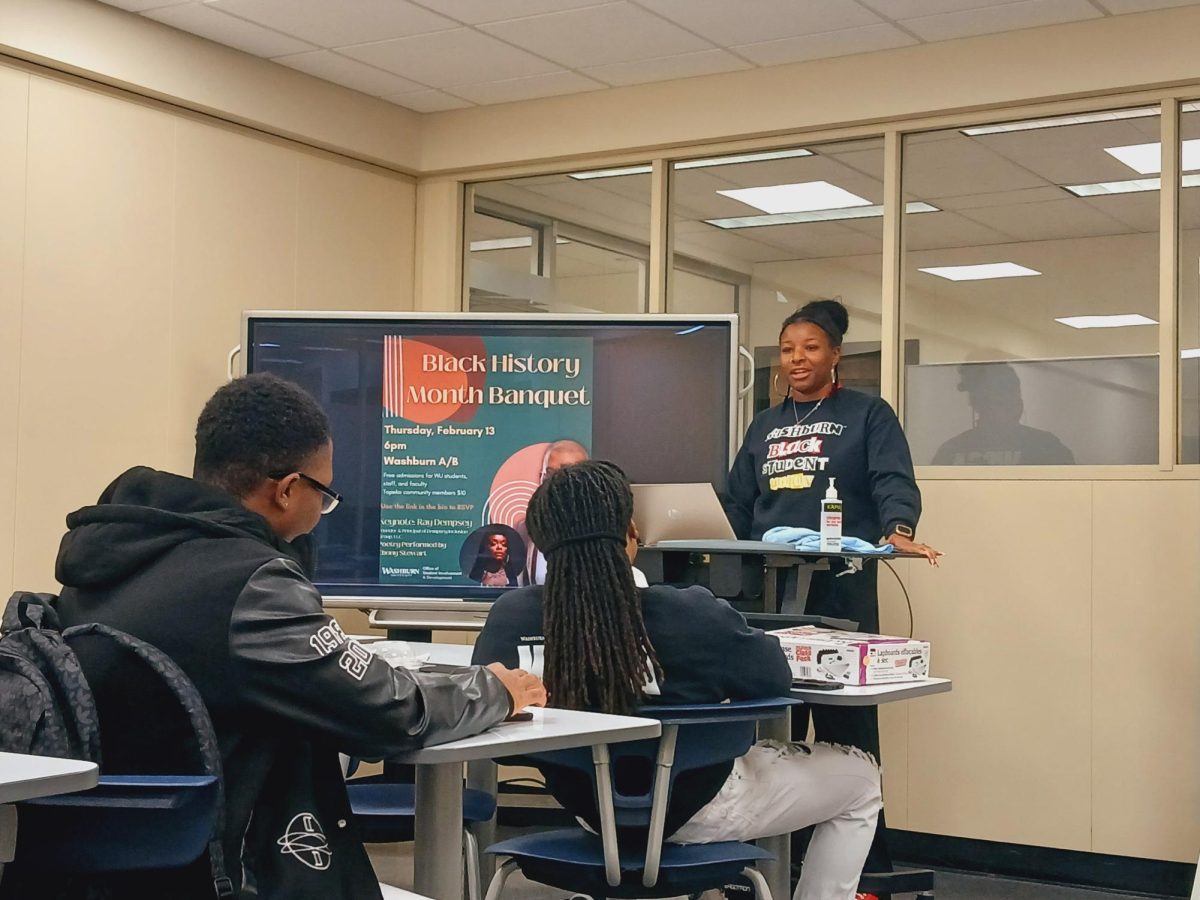The Biology Club conducted its weekly club meeting Feb. 26 in Stoffer Science Hall. They held a presentation and then followed through with a game on how diseases spread rapidly. A total of 14 people attended the meeting.
Timothy Speer, a club member and senior environmental biology major, started off the club meeting with a presentation on his experience working as a seasonal conservation land manager.
“We create and sustain habitable wildlife areas … [and] the task can vary depending on your location a lot,” Speer said.
Speer further shared his experience working with the Kansas Department of Wildlife & Parks.
“As a public land manager, we’re just responsible for mitigating invasive species and restoring natural habitat,” Speer said. “So where I worked at Atchison, we had a lot of flooding and things like that. So we did a lot of planting food plots [for] deer and pheasants and quails.”
Speer talked about how creating a connection in Atchison allowed him to easily transfer into the Topeka Region 2 office where he gained further experience.
August Wilson, senior biology major and president of the club, encourages people to join.
“We are not just for biology majors,” Wilson said. “We just encourage anybody who is at least a little bit interested in biology to come. We focus on public speaking opportunities, service events and engaging with each other as a community.”
Benjamin Reed, associate professor of biology, is the advisor of the club. He recently started a new class called “Everyday Biology,” which is a simplified version of biology for those who are interested in it. Among his many experiences, his work on the behavior of turtles helped him create his lab manual for the class.
“During my dissertation, I created social networks of turtles, which seems kind of crazy, but I actually document how turtles are interacting with each other,” Reed said. “We’re starting to think about disease and, in our case, also how parasites are spread between the turtles … and I was like ‘I can take this turtle model and like do it like with humans and whatever.’”
Reed explained how big social circles cause the disease to spread like wildfire and even if not in a big social circle, indirect contacts lead to the spread of a disease in his segment of the epidemiology lab. The room then proceeded to partake in a game that further illustrated Reed’s explanation.
Additionally, the club does a science-themed art show every spring that they raffle off tickets to raise money for an organization.
“The club hasn’t yet decided what organization to donate to yet, but in the past, we have donated to a planting tree organization,” Reed said.
The biology club tries to do one or two service events every semester and this semester they are hosting an upcoming “March Madness” event.
Edited by Jeremy Ford and Morgan Albrecht




